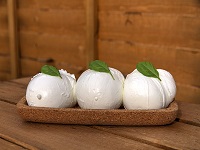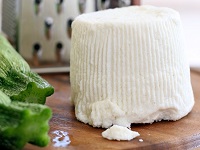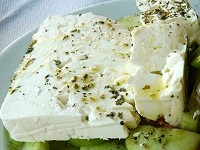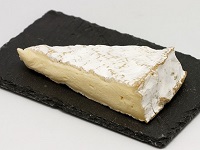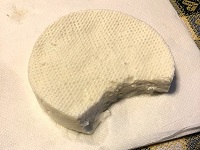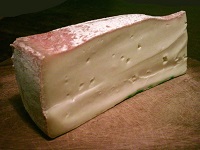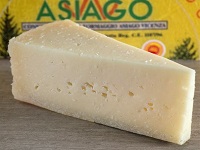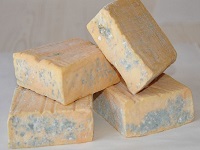Moscato Secco (Italy)
Moscato Secco Flavors
Dry Moscato Secco has floral, citrus and spice aromas, like lemon, pear, nectarine, peach and orange blossom.
Lemon |
Pear |
Peach |
Nectarine |
Mandarin |
Orange Zest |
Grapes |
Honeysuckle |
Moscato Secco Profile
Moscato Secco is dry, fruity and delicate:
| SUGAR: | Dry (3 g/l) |
| BODY: | Medium |
| FRUIT: | Medium |
| ACIDITY: | High |
| ALCOHOL: | 12-13% ABV |
| Serving temperature: 8-10°C (46-50°F) | |
Moscato Secco Food Pairing
Moscato Secco pairs well with Seafood, Fried Fish, and Fried Chicken.
Aperitif |
Oysters |
Shrimps |
Seafood |
Fish |
Chicken |
Chips |
Soft Cheese |
Excellent Pairings
Oysters. Mussels
Clams. Shrimps.
Plain Fish. Sea Bass.
Fried Fish. French Fries.
Fish and Chips.
Italian Specialities
Insalata di Bresaola.
The Ideal Glass for Moscato Secco
A Riesling Glass has a tall and narrow bowl to emphasize the aromas of the wine.
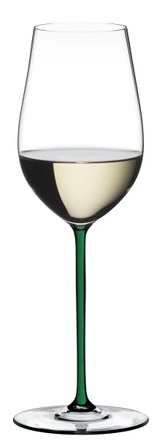
|
The shape also helps balance the high acidity often found in Moscato Secco.
The Riesling glass is perfect for any bone dry wines with high acidity like Chablis, Chenin Blanc, Picpoul and Vinho Verde. |
Moscato Secco Cheese Pairing
Moscato Secco is known for its light, crisp, and sometimes slightly fruity profile. It pairs well with a variety of cheeses.
Opt for cheeses with moderate saltiness and creaminess to balance the Moscato Secco's acidity.
Try to add fresh fruits (grapes, apples, pears), nuts (almonds, walnuts), or a drizzle of honey to enhance the pairing.
Fresh and Mild Cheeses
The delicate flavors of a Mozzarella pairs well with a light and fruity Moscato Secco.
Any Ricotta type of cheese is good, especially if served with a drizzle of honey and fresh fruits.
The tanginess of a Feta Cheese will complement the subtle fruit notes of the Moscato Secco.
Soft Cheeses
The creamy texture and mild flavors of a Brie work beautifully with Moscato Secco.
The acidity of the Moscato Secco will also balance the richness and saltiness of a Primo Sale.
The nutty, buttery qualities of an Italian Fontina is a god match for Moscato Secco.
Semi-Hard Cheeses
A lightly aged Asiago can add a complementary tang to a light Moscato Secco.
Blue Cheeses (for contrast)
The mild creaminess of a Italian Robiola contrasts nicely without overpowering the Moscato Secco.
If You Like Moscato Secco
You Will Also Like:
The Muscat Grape
The Muscat family includes over 200 grape varieties that have been used in wine production for many centuries.
Dry White Wines
Muscat grapes can be used produce dry white wines, often characterized by their floral and fruity aromas with notes of peach, orange blossom, and honey. These wines are typically light and refreshing.
Fortified Wines
Muscat grapes are also used to make fortified wines, which have higher alcohol content due to the addition of spirits.
Muscat of Alexandria
Muscat of Alexandria is an "ancient vine" - one of the oldest unmodified vines in existence. The name is associated with Ancient Egyptians from Alexandria who used the grape both for wine making and eating.
Muscat of Alexandria is characterized by its great aromatic power and high sugar content. The fruits of the bunch are larger and oval than those of the small-grained Muscat.
It is known under a variety of names (see below).
Muscat Blanc à Petits Grains
Muscat Blanc à Petits Grains is a white wine grape of Greek origin. The name comes from its small berry size and tight clusters.
It is known under a variety of names (see below).
Muscat of Alexandria
Muscat of Alexandria synonyms:
| Moschato Alexandrias | Greece |
| Moschato Limnou | Greece |
| Moscatel de Alejandría | Spain |
| Moscatel de España | Spain |
| Moscatel de Málaga | Spain |
| Moscatel de Grano Gordo | Spain |
| Moscatel Gordo Blanco | Spain |
| Moscatel de Setúbal | Portugal |
| Moscatel Graúdo | Portugal |
| Moscato Francese | Italy |
| Moscato Bianco | Italy |
| Insolia | Italy |
| Zibibbo | Italy |
| Seralamanna | Italy |
| Muscat Romain | France |
| Zibeben Muscat | Germany |
| Moscatel de Alejandría | Chile |
| Muscat of Fat Grain | USA |
Muscat Blanc à Petits Grains
Muscat Blanc à Petits Grains synonyms:
| Muscat á Petits Grains | France |
| Muscat de France | France |
| Muscat de Beaumes-de-Venise | France |
| Muscat de Rivesaltes | France |
| Muscat de Frontignan | France |
| Muscat de Lunel | France |
| Muscat de Mireval | France |
| Muscat d'Alsace | France |
| Muscat of Kefalonia | Greece |
| Muscat of Samos | Greece |
| Muscat of Patras | Greece |
| Moscatel de Grano Menudo | Spain |
| Moscatel Morisco | Spain |
| Moscatel do Douro | Portugal |
| Moscatel Galego Branco | Portugal |
| Moscato d'Asti | Italy |
| Moscato di Canelli | Italy |
| Gelber Muskateller | Germany |
| Rutherglen Muscat | Australia |
| Sárgamuskotály | Hungary |
| Muscat Canelli | USA |
| Small-grained White Muscat | England |
Muscat in France
In France, the Muscat grape has a long and diverse tradition of use, primarily for aromatic white wines, often sweet or fortified, but also dry and sparkling styles.
France cultivates several Muscat varieties, the most common are:
- Muscat Blanc à Petits Grains – the most noble and aromatic
- Muscat of Alexandria – less refined, used in warmer climates
- Muscat Ottonel – used in cooler regions like Alsace
Vin Doux Naturel (Natural Sweet Wines)
Vin Doux Naturel (VDN) are sweet wines made by mutage (adding grape spirit to stop fermentation and preserve sweetness).
This is where Muscat truly shines in France:
Muscat de Beaumes-de-Venise is a sweet fortified wine from southern Rhone.
It is made from Muscat Blanc à Petits Grains, with notes of peach, orange blossom, and honey.Muscat de Rivesaltes is a sweet fortified wine from the Roussilon region.
It is a blend of Muscat Blanc à Petits Grains and Muscat of Alexandria witha a sun-drenched, tropical style.Muscat de Frontignan (Languedoc) – Rich, perfumed wines often with candied fruit and floral tones.
-
Muscat de Lunel and Muscat de Mireval are are also natural sweet dessert wines from the Languedoc region, produced exclusively by the Muscat grape.
Muscat du Cap Corse (Corsica) – More rare, elegant, and Mediterranean in character.
Dry White Wines
Muscat is used sparingly for dry wines, exept from in Alsace, where Muscat d’Alsace (usually from Muscat Ottonel) can produce delicately aromatic, dry wines with grapey, floral, and herbal aromas.
Muscat d'Alsace is a dry table wine made from Muscat Ottonel. These wines are crisp and dry, with a fruity aroma, and are excellent as aperitifs or with asparagus, a tough food to pair.
Sparkling Wines
Muscat is sometimes used in regional sparkling wines, though not in Champagne. It appears in local, often semi-sweet or sweet sparkling wines, especially in warmer southern regions.
Clairette de Die is a sparkling wine from the town of Die in the northern Rhone region. It is made from a blend of Muscat Blanc and the Clairette grape, producing a sparkling white wine with a fruity, musky taste.
Moscato in Italy
In Italy, the grape is called Moscato.
It is used to produce dry, sweet, sparkling, and fortified wines.
The primary variety used in Italy is Moscato Bianco (Muscat Blanc à Petits Grains), prized for its intense floral and fruity aromas.
Most famous are the sparkling wines Moscato d'Asti and Asti Spumante for celebrations and aperitifs.
Moscato d’Asti DOCG (Piedmont)
Style: Lightly sparkling (frizzante), sweet, and low in alcohol (typically around 5.5% ABV).
Profile: Bright and fresh with notes of orange blossom, peach, apricot, and honey.
Use: A favorite for desserts, brunch, or aperitifs. Often enjoyed chilled and unaged.
Asti Spumante DOCG (Piedmont)
Style: Fully sparkling (spumante), sweeter and slightly higher in alcohol than Moscato d’Asti.
Profile: Still floral and fruity, with a bit more effervescence and richness.
Use: Celebration wine, often served at festive occasions and with desserts like panettone.
Still Moscato Wines
Produced in smaller amounts across Italy, including regions like Sicily, Puglia, and Lazio.
Often labeled as Moscato Secco (dry Moscato) or Moscato Bianco.
Profile: Aromatic but dry, showcasing the grape’s floral bouquet without residual sugar.
Passito-Style Moscato Wines
In regions like Pantelleria (Sicily), Moscato di Pantelleria is made using Moscato di Alessandria sun-dried grapes (passito method).
Style: Rich, sweet, and concentrated dessert wines, sometimes fortified.
Profile: Notes of raisins, figs, dried apricots, and exotic spice.
Moscadello di Montalcino
Moscadello di Montalcino is one of Italy’s best sweet wines.
Moscato Rosa (Trentino-Alto Adige)
A rare and unique variety, red-skinned Moscato, used for intensely aromatic, sweet red or rosé wines.
Profile: Rose petals, red berries, lychee, spice.Zibibbo in Sicily
The name Zibibbo is commonly used in Italy, particularly in Sicily, where it has historical significance.
Zibibbo is often associated with sweet or fortified wines, it is also used to produce dry wines, particularly in Sicily.
Zibibbo Secco can offer a unique and aromatic drinking experience.
Moscato di Siracusa
Moscato di Siracusa is a sweet passitivo wine from Scicily.
Moscatel in Portugal and Spain
Examples include:
- Moscatel de Alejandra (Spain)
- Moscatel de Setúbal (Portugal)
These wines are rich, sweet, and intensely aromatic.
Moscatel in Spain
Sweet Wines
Moscatel is most famous in Spain for producing aromatic sweet wines, often made using sun-dried grapes to concentrate sugars. These wines are known for their floral and fruity character, typically featuring orange blossom, jasmine, peach, and citrus notes.
Moscatel de Alejandría is the most common variety in Spain.
Regions like Málaga, Valencia, and Alicante are renowned for their sweet Moscatel wines.
In Málaga, for example, Moscatel is often vinified into dulce natural (naturally sweet) wines, and in some cases, oxidatively aged for complexity.
Fortified Wines
In Andalusia, particularly around Málaga and Chipiona (near Jerez), Moscatel is used to make fortified wines, sometimes in a style similar to Sherry, but usually sweeter and more floral than Palomino-based Sherries.
Dry and Semi-Dry Wines
Though less common, some producers make dry or semi-dry Moscatel wines that still highlight the grape’s intense aromatic profile but with more balance and acidity.
Sparkling Wines (Espumosos)
Moscatel is also used to produce light, fresh sparkling wines, especially those intended for easy drinking and dessert pairing. These are often made in a frizzante (lightly sparkling) style.
List of Spanish Moscat Use
| Style | Region | Profile |
|---|---|---|
| Sweet wines | Málaga, Valencia, Alicante | Floral, fruity, honeyed, sometimes oxidized |
| Fortified wines | Málaga, Chipiona (Andalusia) | Sweet, high alcohol, sometimes aged |
| Dry/semi-dry | Various experimental producers | Aromatic, refreshing, balanced |
| Sparkling wines | Valencia, Castilla-La Mancha | Light, bubbly, often semi-sweet |
Muscat of Alexandria in Greece
White wines from Limnos are made from Moschato Aspro and Muscat of Alexandria. It is vinified dry, semi-dry and medium sweet.
PDO Muscat of Limnos dessert wines may be either vin naturellement dour (sun-dried grapes) or vin doux naturel – vin de liqueur (fortified).
South Africa
Constantia is a South African dessert wine made from Muscat Blanc à Petits Grains grapes in the district of Constantia in Cape Town.
Muscat in Australia
Different types of Muscat grapes are grown in Australia. Different wine styles have been developed ranging from crisp dry whites to late harvest sweet wines and the famous fortified Liqueur Muscats.
Fortified Muscats are produced in Rutherglen and Glenrowan in northeast Victoria. The grape is Muscat Blanc a Petit Grains.
